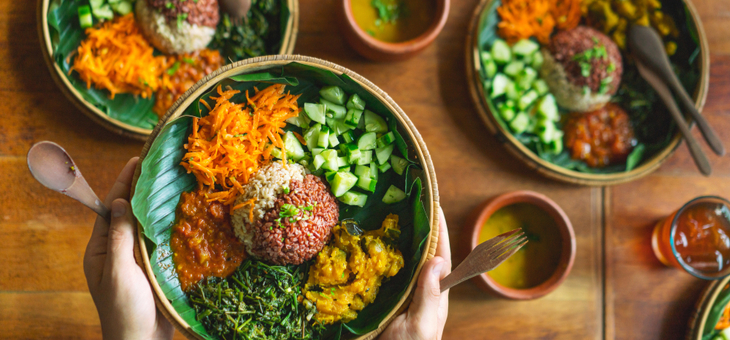It is commonly known nowadays that cutting out meat is one of the best moves we can make to keep our planet healthy, but could it do the same for our bodies?
New research has predicted that one third of early deaths could be prevented if everyone switched to a vegetarian diet, according to healthline.com.
In general, vegetarians are less likely to smoke or drink excessively and more likely to maintain regular exercise than meat eaters. According to Harvard Health, they also consume more fibre, folic acid, potassium, magnesium, phytochemicals and vitamins C and E. Generally, they’ll consume less cholesterol and saturated fat, leading to lower blood pressure, BMI and bad cholesterol. On average, vegetarians are 25 per cent less likely to die from heart disease than non-vegetarians.
Studies have also shown that a vegetarian diet can generally lower your risk of developing some cancers by around 10 per cent. However, the type of meat consumed or avoided may alter the consequences. For example, fish eaters may have a slightly lower risk than vegetarians at getting certain cancers, while cutting out red meat lowers your risk of colon cancer.
A number of studies have drawn correlations between increased meat consumption and the increased risk of diabetes. Even after taking into account the BMI, calorie intake and exercise of participants, studies have suggested that meat-eaters have twice the risk of developing diabetes than vegetarians. So, if developing or managing diabetes is a concern of yours, it may be time to cut back on the meat, especially processed meats.
Of course, there are fears associated with cutting staples out of your diet, and some may be justified. Vitamin B12 is found only in animal products, but this includes dairy and eggs, so most vegetarians get all they need in their daily diet. However, vitamin supplements or foods such as breakfast cereals, rice or soy beverages are often recommended to vegans. In Western countries, there’s no evidence of vegetarians being deficient in either iron, zinc or protein: all these can be easily found in a healthy meat-free diet.
Are you a vegetarian? If so, why? If not, would you consider reducing the meat in your diet?
Related articles:
Foods that increase death risk
A heart-healthy daily menu
Tasty No-Bake Vegetarian Lasagne

